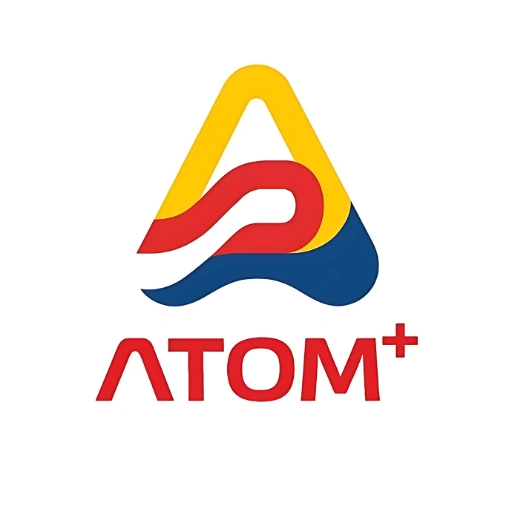Our Projects
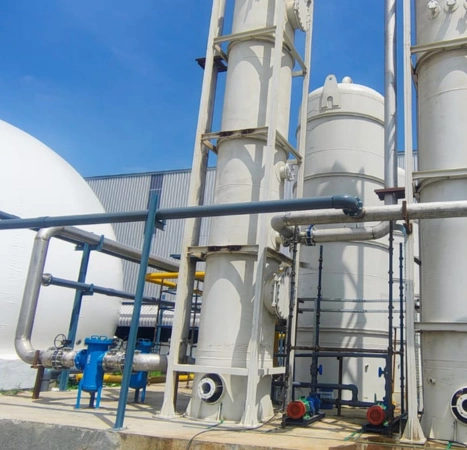
Information
Project Name:
20 TPD Bio-CNG
Phase 1:
Construction (2022-2023)
Phase 2:
Operational (2023-Present)
Phase 3:
Expansion (Planned for 2025)
Current Status:
The GreenFuel facility is currently operational and has been producing CNG for six months.
Description of Situation
Feedstock:
Our project is powered by a sustainable blend of organic materials, primarily sourced from the local community. We utilize a combination of cow manure collected from five nearby dairy farms and corn stover harvested from surrounding agricultural fields. On average, we process approximately 100 tons of feedstock daily, supporting a circular economy while reducing agricultural waste and environmental impact.
Anaerobic Digestion Process:
The prepared feedstock is introduced into two large, temperature-controlled anaerobic digesters, where it undergoes a natural breakdown process. Inside these sealed environments, anaerobic bacteria decompose the organic material in the absence of oxygen, generating biogas as a byproduct. This process takes place over a 30-day retention period, ensuring efficient conversion of waste into energy
The controlled temperature and mixing within the digesters help maintain optimal conditions for microbial activity, resulting in a stable and continuous production of biogas. This biogas primarily consists of methane (CH₄) and carbon dioxide (CO₂), which can be further purified and used as a renewable energy source for electricity generation, heating, or as vehicle fuel. In addition to energy production, the digestion process also yields a nutrient-rich byproduct known as digestate, which can be used as a natural fertilizer, closing the loop in the agricultural cycle. This approach not only reduces greenhouse gas emissions but also promotes a more sustainable and circular use of resources.
CNG Compression and Storage:
Once the biogas is upgraded to high-purity biomethane, it is compressed to 200 bar using a high-efficiency compression system. The compressed natural gas (CNG) is then stored in high-pressure storage tanks, ensuring safe and reliable containment.
Our facility has a total storage capacity of 50,000 liters of CNG, allowing for consistent supply and distribution. This storage system plays a vital role in stabilizing output, supporting on-demand fueling operations, and enabling seamless integration with transportation and energy infrastructure.
Our project is powered by a sustainable blend of organic materials, primarily sourced from the local community. We utilize a combination of cow manure collected from five nearby dairy farms and corn stover harvested from surrounding agricultural fields. On average, we process approximately 100 tons of feedstock daily, supporting a circular economy while reducing agricultural waste and environmental impact.
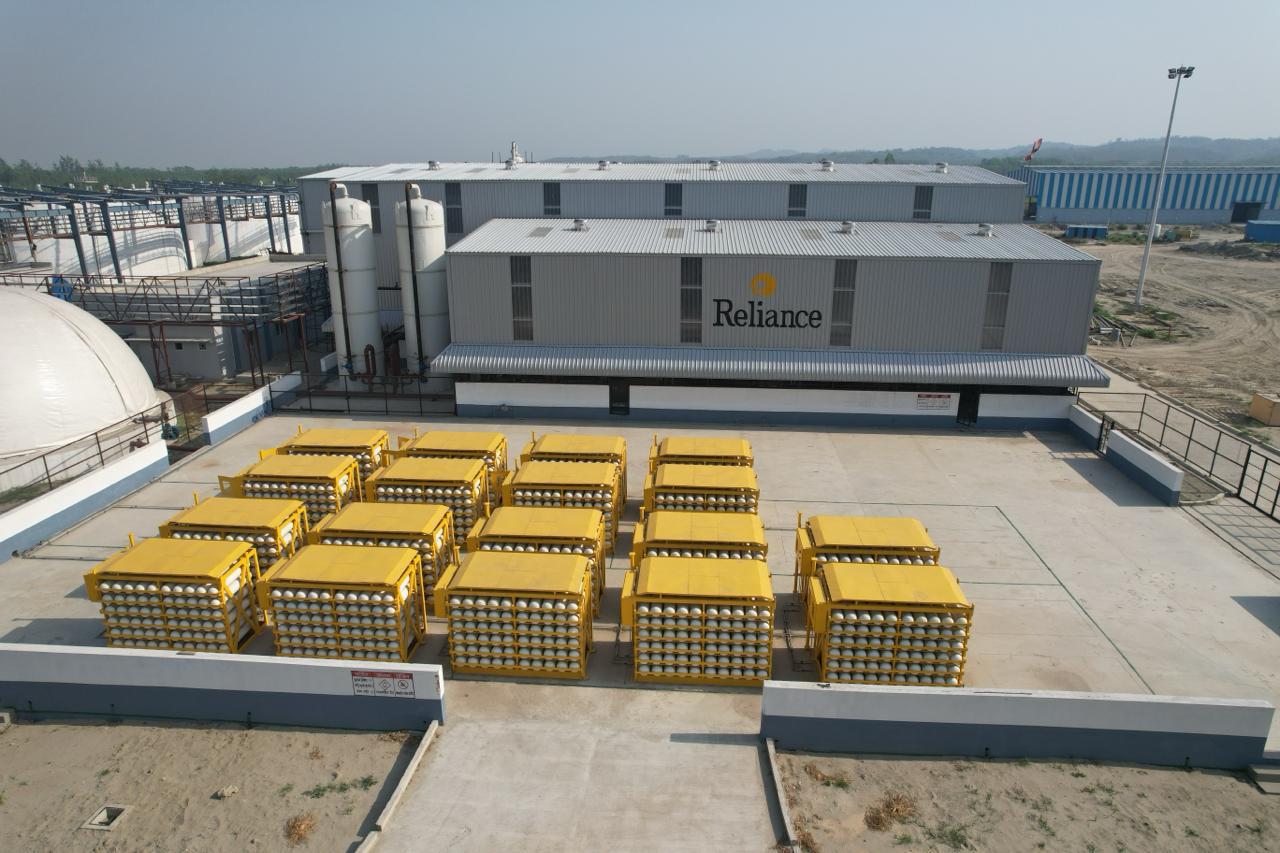
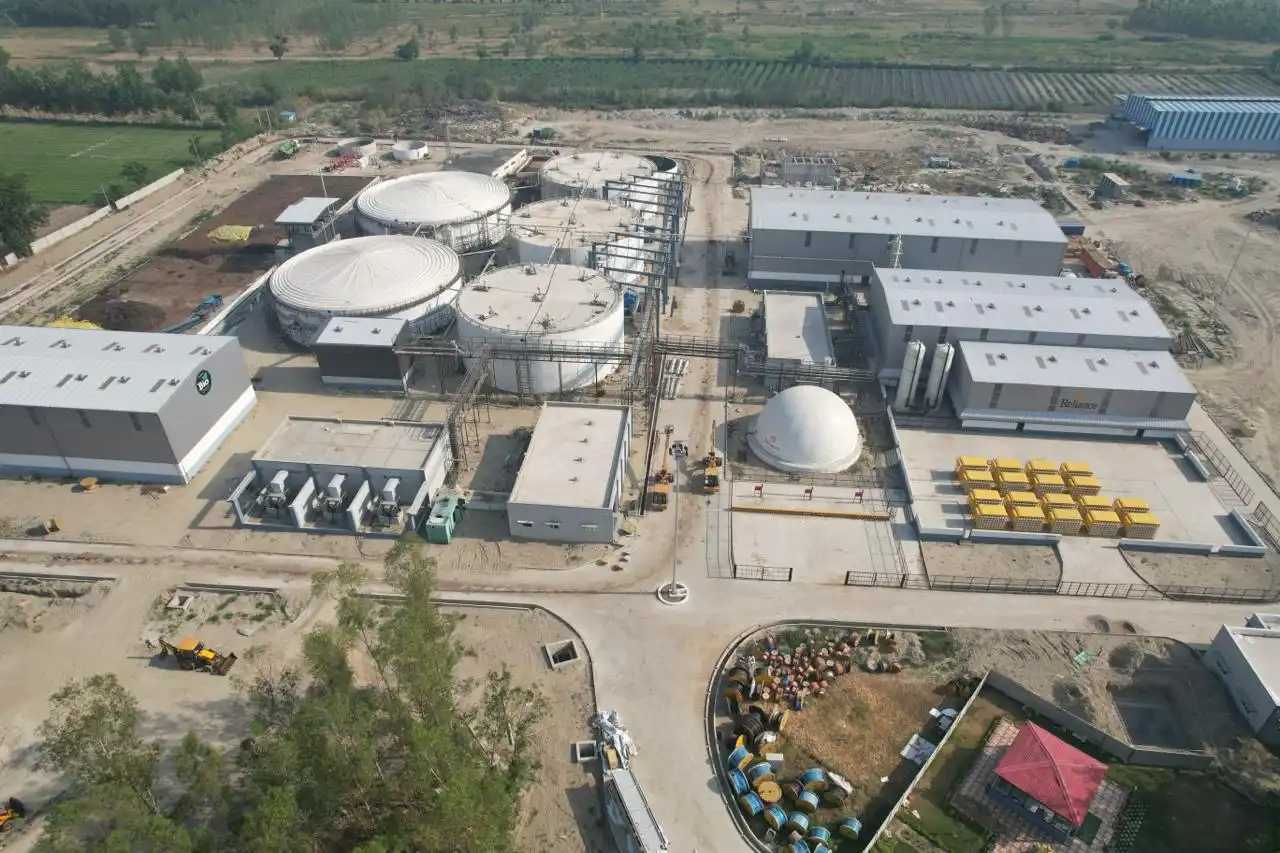
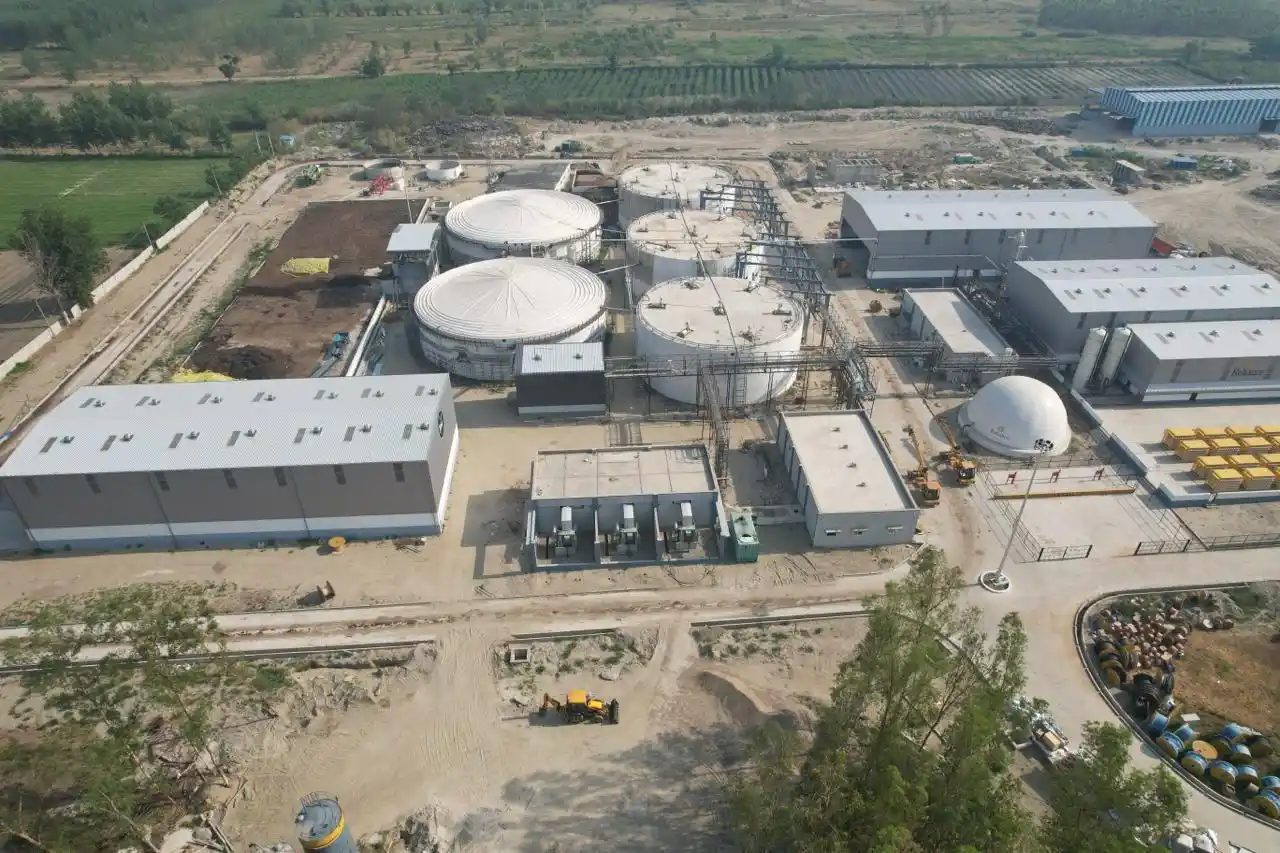
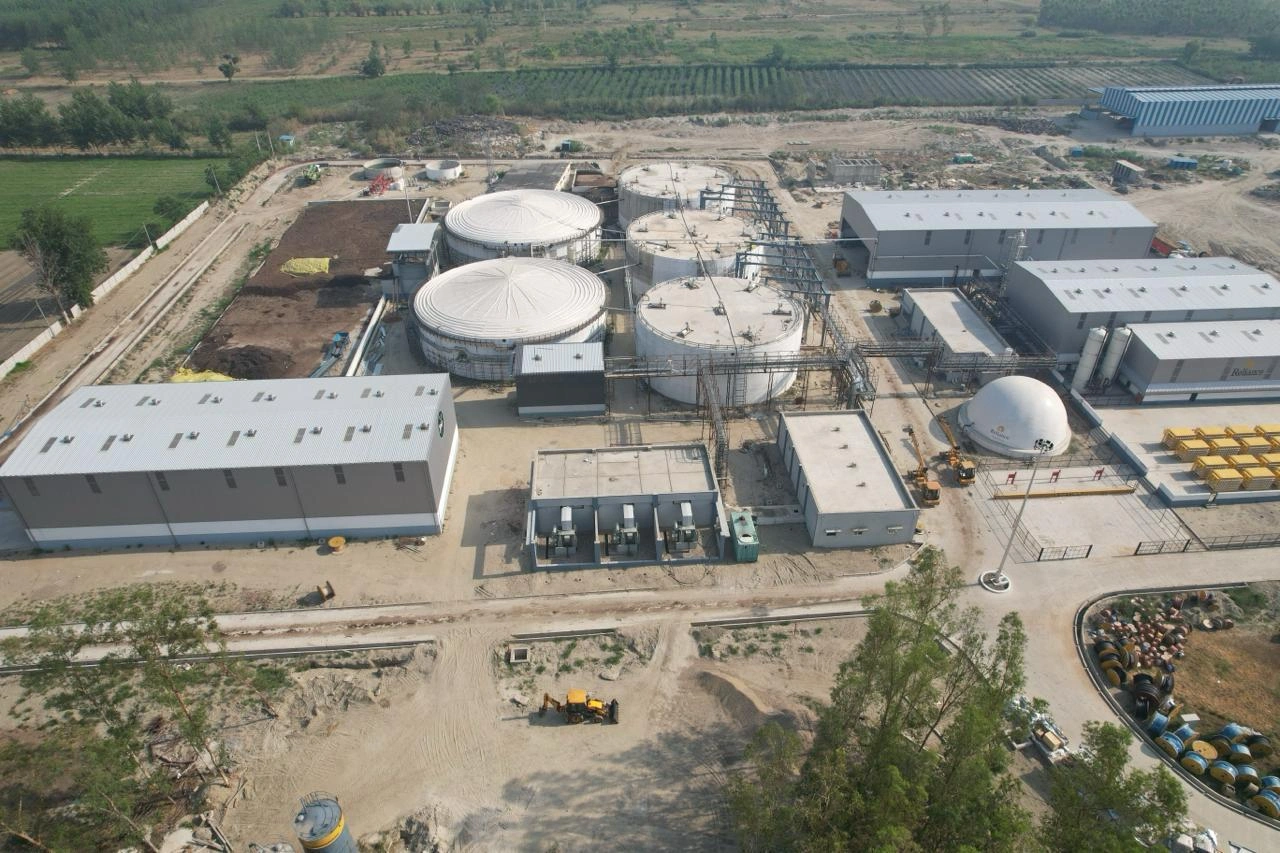
Technology and Equipment:
Our facility is equipped with state-of-the-art technology to ensure efficient and reliable operation across every stage of the biogas production process. This includes high-performance anaerobic digesters, advanced Pressure Swing Adsorption (PSA) units for biogas upgrading, and robust CNG compressors for fuel-grade gas compression and storage
Each component has been carefully selected for its proven reliability, energy efficiency, and compatibility with our sustainability goals. Our integrated system enables seamless conversion of organic waste into clean, renewable energy delivering both environmental and economic value.
Environmental Benefits:
At GreenFuel, sustainability is at the core of our operations. Our biogas project delivers a range of environmental benefits that support cleaner energy, healthier ecosystems, and a more circular economy.
1. Waste Reduction:
We divert approximately 18,250 tons of agricultural waste from landfills every year. By processing this organic material through anaerobic digestion, we significantly reduce methane emissions and prevent soil contamination, contributing to a cleaner environment.
2. Greenhouse Gas Reduction:
By replacing conventional diesel with compressed natural gas (CNG) produced on-site, we estimate an annual reduction of 10,000 tons of CO₂ emissions. This transition to clean fuel plays a crucial role in lowering the carbon footprint of transportation and industrial applications.
3. Soil and Water Benefits:
The digestate, a nutrient-rich byproduct of anaerobic digestion, is repurposed as an organic fertilizer. It enhances soil health, improves moisture retention, and reduces the need for synthetic fertilizers, thereby promoting sustainable farming practices and protecting local water sources from chemical runoff.
Technology and Equipment:
Economic Benefits:
At GreenFuel, our commitment to sustainability extends beyond the environment—our project delivers measurable economic advantages for the local community and regional economy.
o Renewable Energy Production:
GreenFuel produces approximately 5,000 cubic meters of Compressed Natural Gas (CNG) each day. This clean and renewable fuel is used to power a fleet of local buses, farm vehicles, and industrial machinery—reducing dependency on fossil fuels while promoting energy resilience in rural and urban transport sectors.
o Job Creation:
he project has directly created 20 skilled jobs in operations, maintenance, logistics, and administration. These roles not only provide stable employment but also contribute to skill development and technical capacity-building within the community. Indirect employment through supply chains, support services, and farm partnerships adds to the broader socioeconomic benefit.
o Cost Savings:
By switching to GreenFuel’s locally produced CNG, farms and transport operators have reported up to 30% savings in their fuel expenses. These savings allow local businesses to reinvest in growth, improve profitability, and reduce operating costs—making sustainable energy a competitive economic advantage.
This combination of energy production, employment, and cost efficiency showcases the powerful role renewable energy can play in driving inclusive, local economic development.
Each component has been carefully selected for its proven reliability, energy efficiency, and compatibility with our sustainability goals. Our integrated system enables seamless conversion of organic waste into clean, renewable energy delivering both environmental and economic value.
Data and Performance:
At GreenFuel, transparency and operational efficiency are core to our mission. We maintain consistent monitoring and data reporting to ensure high-quality fuel production and measurable environmental impact.
o Production Data:
Our facility produces an average of 5,000 cubic meters of Compressed Natural Gas (CNG) per day, with a methane content exceeding 95%. This high purity ensures optimal combustion performance, reduced engine wear, and lower emissions compared to conventional fuels.
o Emissions Data:
Through the use of upgraded biogas, we achieve a reduction of approximately 10,000 tons of CO2 emissions annually. This significant decrease contributes to national and global climate targets. Continuous monitoring ensures that our systems operate within optimal parameters, and detailed emissions data is available upon request for partners and stakeholders. By leveraging real-time analytics and rigorous process controls, GreenFuel ensures reliability, traceability, and accountability in every cubic meter of renewable energy we produce.

